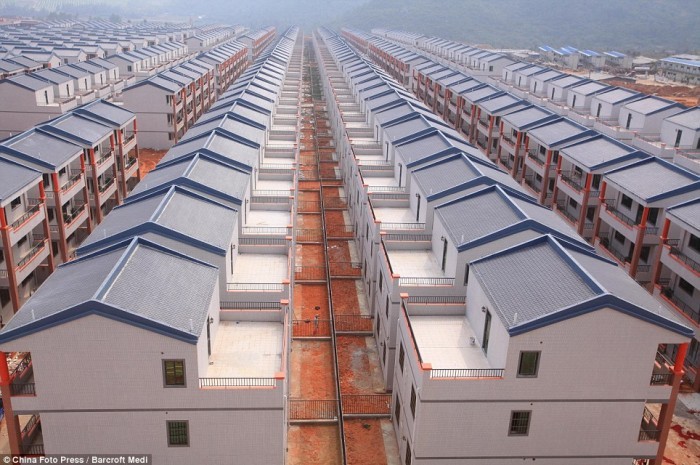Emerging Opportunities In Growth Sectors Amid Covid-19 Crises

With the Covid-19 pandemic pushing the global economy (Nigeria inclusive) to record decline, creativity and innovation in goods and services have become very imperative and necessary, perhaps the competitive advantage factor. Opportunities for productivity and economic optimization abound in sectors like healthcare, agriculture and food, manufacturing, ICT amongst others. The success or otherwise of Nigeria at this critical period will depend to a large extent on our ability to leverage on creativity and innovation to build a competitive economy and promote import substitution moving forward. According to the recently released Nigeria Economic Sustainability Plan (NESP) for 2020 titled “Bouncing Back”, the government seeks to foster new ways of working, producing, learning and managing public health and safety in the years to come. Our environmental scan reveals that the ongoing covid-19 pandemic notwithstanding, sectors such as ICT, healthcare, agriculture (food value chain) manufacturing, power, road infrastructure and mass housing remain largely resilient with inherent growth potentials.
Agricultural production:
Although agriculture remains the largest sector of the Nigerian economy (23% of GDP) and employs two-third of the entire labour force, production hurdles have significantly stifled the performance of this sector. Over the past 20 years, value-added per capita in agriculture has risen by less than 1% annually and it is estimated that Nigeria has lost USD 10 billion in annual export opportunity due to continuous decline in the production of some commodities, according to Food and Agriculture Organisation (FAO). Over the years, Food production have not kept pace with the growth in population, resulting in rising food imports and declining levels of national food self-sufficiency (FMARD, 2008). According to NESP (2020), the government’s proposed Mass Agricultural Programme is expected to bring between 20,000 and 100,000 hectares of new farmland under cultivation in every State of the Federation. Investors from Japan looking at the Nigeria’s agricultural sector should consider investing in poultry vaccine production, rice mill, food processing and fresh fruits (Tree of Life) packaging and export. These areas are considered as top in the agriculture opportunity chart which also compliment largely with Japanese expertise/ opportunity cost.
Poultry Vaccine Production:

Following the recent alarm raised by the World Bank about a potential rise in food insecurity in Africa exacerbated by the COVID-19 pandemic, one of the emerging areas of potential investment opportunity in agricultural sector is poultry production. According to the 2016-2020 Agriculture Promotion Policy document released by the Federal Ministry of Agriculture and Rural Development (FMARD) puts Nigeria’s potential annual chicken consumption at 200 million birds and the domestic supply at 140 million birds, indicating a gap Vincent Nwani, PhD Lead Consultant at Kavind Ltd June 2020 of 60 million birds. This gap is currently being covered by smuggling of frozen chicken through the land borders into markets across the country. This presents continued health concerns due to contamination and other hazards. Also, this has caused a huge outflow of foreign exchange on annual basis and has consequential impact on employment opportunities for Nigerians. If local production were to meet demand under internationally competitive conditions, it would have a positive impact on the economy and unemployment. One of the major challenges in poultry production in Nigeria is limited private sector investment in the domestic production of vaccines and biologicals leading to high cost & scarcity of vaccine and increased frustration of small poultry farmers. While there is no policy limiting the involvement of private sector actors in vaccine production, there is need for a business plan that showcases the investment profile and bankability of domestic vaccines and biologicals production as against importation. Such investment would reduce the pressure on The Nigerian Veterinary Research Institute (NVRI) for vaccine production leaving the institute to focus mainly on research and innovation. It is believed that planned privatization of the vaccine manufacturing unit of NVRI presents yet a new investment opportunity for the private sector. Incentives such as duty waivers for vaccine manufacturing plants, equipment, raw materials importation, tax holiday and pioneer status are being considered for willing investors in vaccines production and we believe that this business opportunity can be exploited by Japanese firms.
Information and Communications Technology (ICT):
The Information and Communications Technology (ICT) sector, which subsumed the digital economy, grew from a depressed -1% in 2017 to become the fastest growing sector with a growth rate of 9.7% at the end of Q1-2020. ICT is now the second largest sector in Nigeria after agriculture with contribution of 14.01% to the country’s GDP. There are currently over 176 million mobile subscribers, running at a penetration rate of 89% and stand as the highest rate of GSM penetration in Africa and Middle East. Over 118 million Nigerians had access to the internet at the end of 2019, representing about 60% of the population. This evidence shows that Nigeria is ripe for limitless digital revolution in diverse fronts such as digitalization of education sector and health care delivery across the country.
According to NESP (2020), to foster a culture of innovation and create a wide variety of technology and ICT jobs, special attention will be paid to the promotion of technology hubs, callcentres for business process outsourcing and digitilisation of processes, both in Government and within the private sector. Experience thus far indicates that, Fintech, edutech, healthtech and transport techs and process automation in our spares are projected to experience exponential growth in Nigeria over the next few years.
Power – Solar Home Systems:

Lack of electricity by households and small businesses in Nigeria continues to stand as the single most challenging militating factor constraining creativity and innovation. While the Nigerian Government work to resolve the lingering issues in the power sector, it is estimated that the market for Solar Home Systems remain viable with approximately 15 million households, serving about 45 million individual Nigerians who are currently not connected to the National Grid. In view of the scale of materials required, solar equipment manufacturers will be required to set up production facilities in Nigeria, thereby offering additional job opportunities to Nigerians. In addition, installation, servicing and payment collections are expected to provide thousands of other jobs. This is another area that Japanese firms can explore as they gear towards expanding their footprints in Nigeria.
Mass Housing Programme:

Housing Short fall for residential homes is estimated at 17 million units while current annual supply of mostly middle-class residential apartments is put at 100,000 units. The projected annual supply to close the housing gap is 1.5 million units over the next 10 years. At least five million new homes are needed in Lagos, the Nigerian commercial capital and a city with over 20 million inhabitants. It is widely held by analysts that unlocking the inherent opportunity in the Nigerian real estate sector rests on the innovative ability to deliver low cost homes ranging around N4-6 million per unit. This is another area that require the attention of Japanese civil engineering technology and investment. The Nigerian Government in its NESP (2020) document pledges full support for private sector players who wish to explore opportunity in this terrain. Also, the availability of young professionals and affordable artisans in the construction industry is a boost for the firm.
Public Works and Road Construction:

The Nigeria government is currently pursuing Public Works and Road Construction Programme focusing on both major and rural roads. As the country cannot afford to continue with the importation of bitumen for road construction, emphasis is now on the use of locally available materials like limestone, cement and granite. Developing the engineering concept and template for this approach in order to assist the Ministry of Agriculture and Rural Development, which is responsible for rural roads is desirable while Public Private Partnership (PPP) arrangement between Nigerian central Government and the private company can be explored for major roads.
Micro, Small & Medium Enterprises:
The Nigerian government is currently implementing a scheme to support business activities of Micro, Small & Medium Enterprises (MSMEs) through guaranteed off take of items like personal protective equipment, face shields, face masks, hand sanitizers, shoe covers, soaps and detergent etc. This is expected to catalyze massive investments in light manufacturing, which will ensure that many common articles of everyday use are made in Nigeria to acceptable standard.
Conclusion
The medium to long term economic fundamentals of the Nigerian economy such as young and growing population, vibrant demand pattern, exponential growth of ICT sector, abundance of arable land and natural resources) remain strong. Investors (foreign and domestic) wishing to explore the emerging opportunities in Nigeria should focus on the identified viable sectors such as healthcare, agriculture and food value chain, manufacturing, ICT, power and road infrastructure and mass housing amongst others.
“GetFundedAfrica is a technology-based, business information platform operated by Afriscaper Research & Consulting Limited with a mission to reduce barriers to funding for African businesses. GFA matches investor ready, African & African-Diaspora owned companies with global investors, leveraging market research, industry data and news aggregation“
Are you an entrepreneur? Share your story with us and get featured on our platform send us an email nichole@getfundedafrica.com
Written By Dr. Vincent Nwani
Dr. Nwani is an economist and business/ investment consultant. He is a former director at the Lagos Chamber of Commerce and Industry (LCCI) where he led training, research and public policy advocacy departments of the Chamber.
Vincent Nwani holds a Doctor of Philosophy (Ph.D) in Economics from Monarch Business School, Switzerland, Master and Bachelor of Science (M.Sc & B.Sc) Degrees in Economics from the Universities of Ibadan and Port Harcourt in Nigeria respectively.







